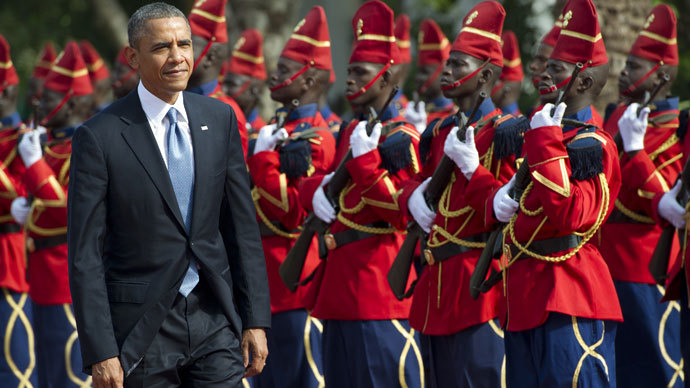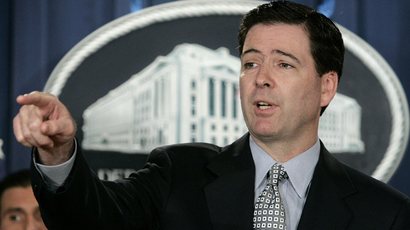Obama’s Africa visit: US playing catch-up with China

US President Barack Obama began his African tour in a bid to strengthen ties and investment opportunities. But experts say the task might prove difficult as China already has significant influence in the region and US is forced to play catch-up.
Obama arrived in Senegal on Wednesday and is also set to visit South Africa and Tanzania.
The president’s tour is happening as US is taking on a bigger military role in Africa, RT’s Gayane Chichakyan reported.
“We hear about new drone bases popping up on the African continent in countries whose governments receive aid from the US in one form or another. We hear US arming and training US security forces in a number of states in Africa, then we learn how some of those forces commit horrible atrocities and yet the US does not stop to take a second to look who they empower,” Chichakyan said.
Just a few recent examples of US-backed violence include, a UN report about US trained troops in Congo guilty of mass rape and other atrocities and a Human Rights Watch report documenting abuse, rape and torture of at least 1,000 Somali refugees by US-backed Kenyan police forces.
One of the reasons why US wants to strengthen ties with Africa is to push out China’s growing influence from the region, an expert told RT.
“They want to of course maintain relations with all these different African states and at the same time to edge out the People’s Republic of China that has been gaining considerable amount of influence in Africa. Just over the last few years China has become the number one trading partner of the African Union,” editor of Pan-African News Wire Abayomi Azikiwe said.
Another reason for increased US involvement is the fact that Africa is an extremely rich continent and US wants to keep its oil imports secure.
This is Obama’s second trip to sub-Saharan Africa since he first assumed office in 2009, but it might fall short as China has already been making great strides in Africa.
The time Obama has spent in Africa falls short of significant when compared to China’s engagement in the region. China’s top leaders, including the president, vice president, premier, deputy premier, cabinet ministers and top Communist Party officials have visited around 30 African countries in comparison to Obama’s soon-to-be four.
China's current President Xi Jinping has visited three African countries since taking office on March 14, 2013 and former Chinese president Hu Jintao has been to 17 African nations in a single 10-month stretch between July 2006 and February 2007.
Ayo Johnson, the founder of African News Wire, told RT the future of Africa will depend on how effectively countries shake the influence of foreign powers. The continent, because of international economic difficulty, is on the verge of being able to determine its own future.
“It’s not just about the US, it’s the carrot-and-stick approach,” he said. “They are in a very unique position. They can choose supplies, they can influence geopolitics, and very much they can control their own affairs moving forward. I think the Americans know that very clearly – that Africans cannot be pushed and it will be based on their terms, as opposed to the other way around.”
Watch Chichakyan’s full report for more information.














